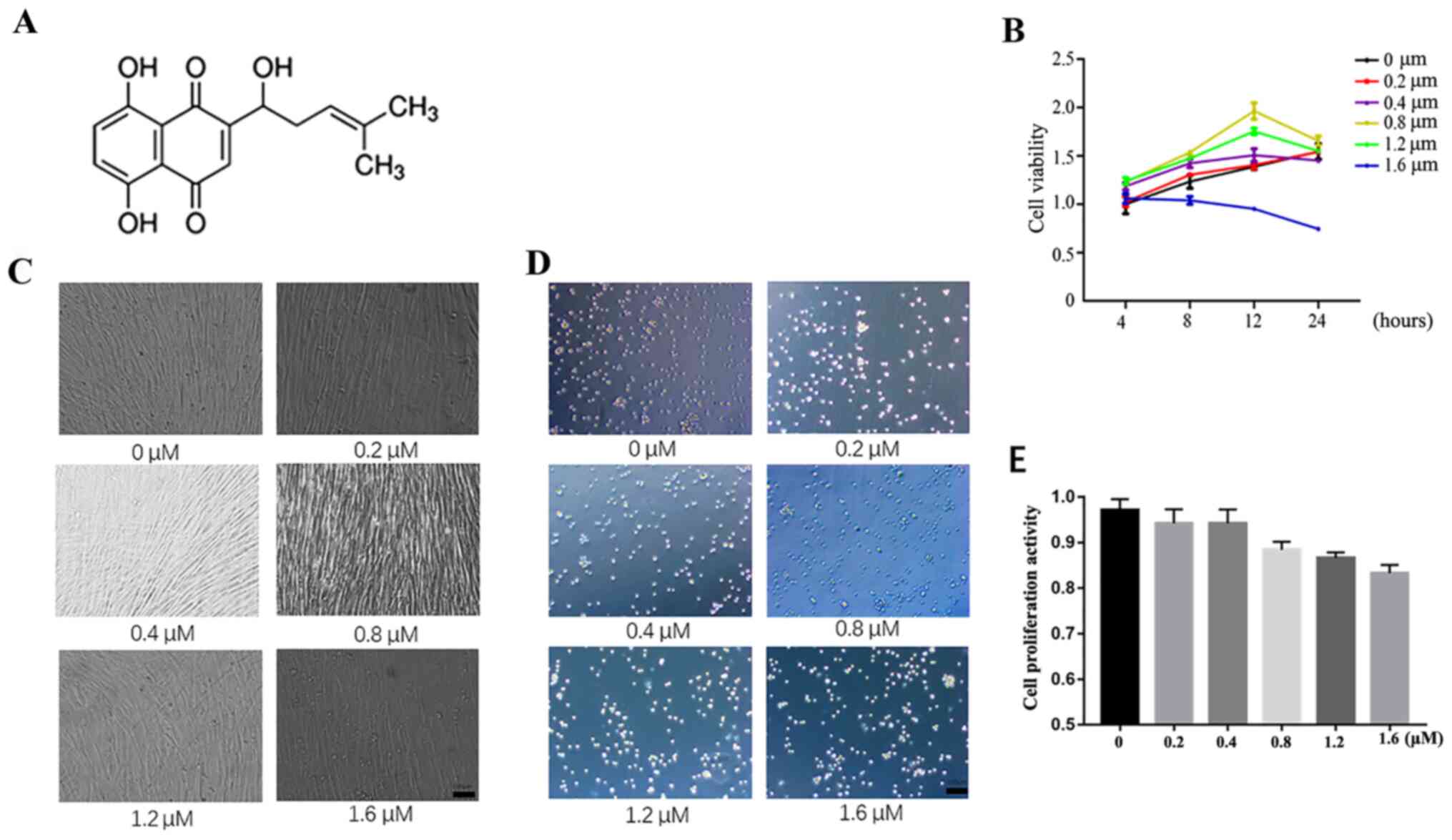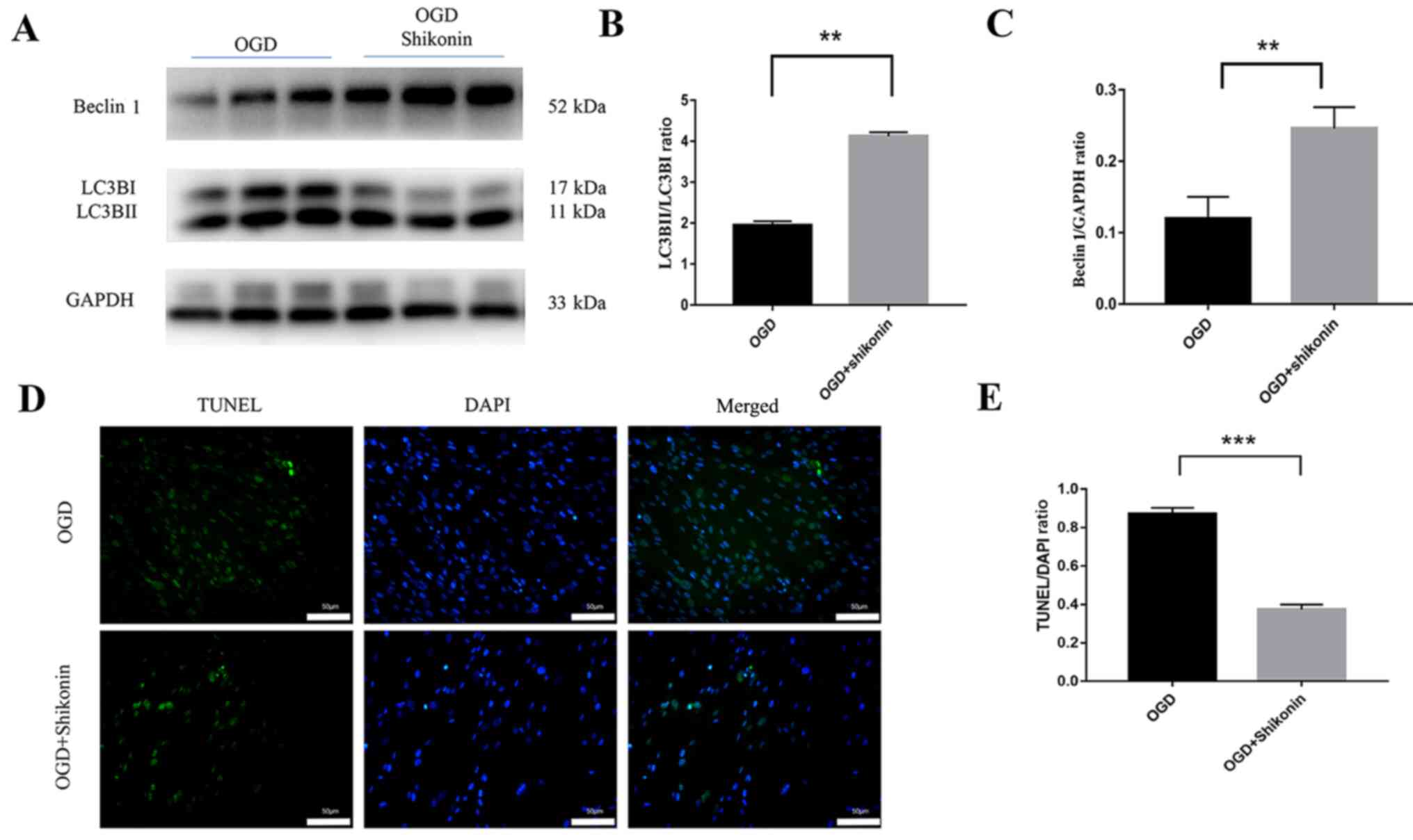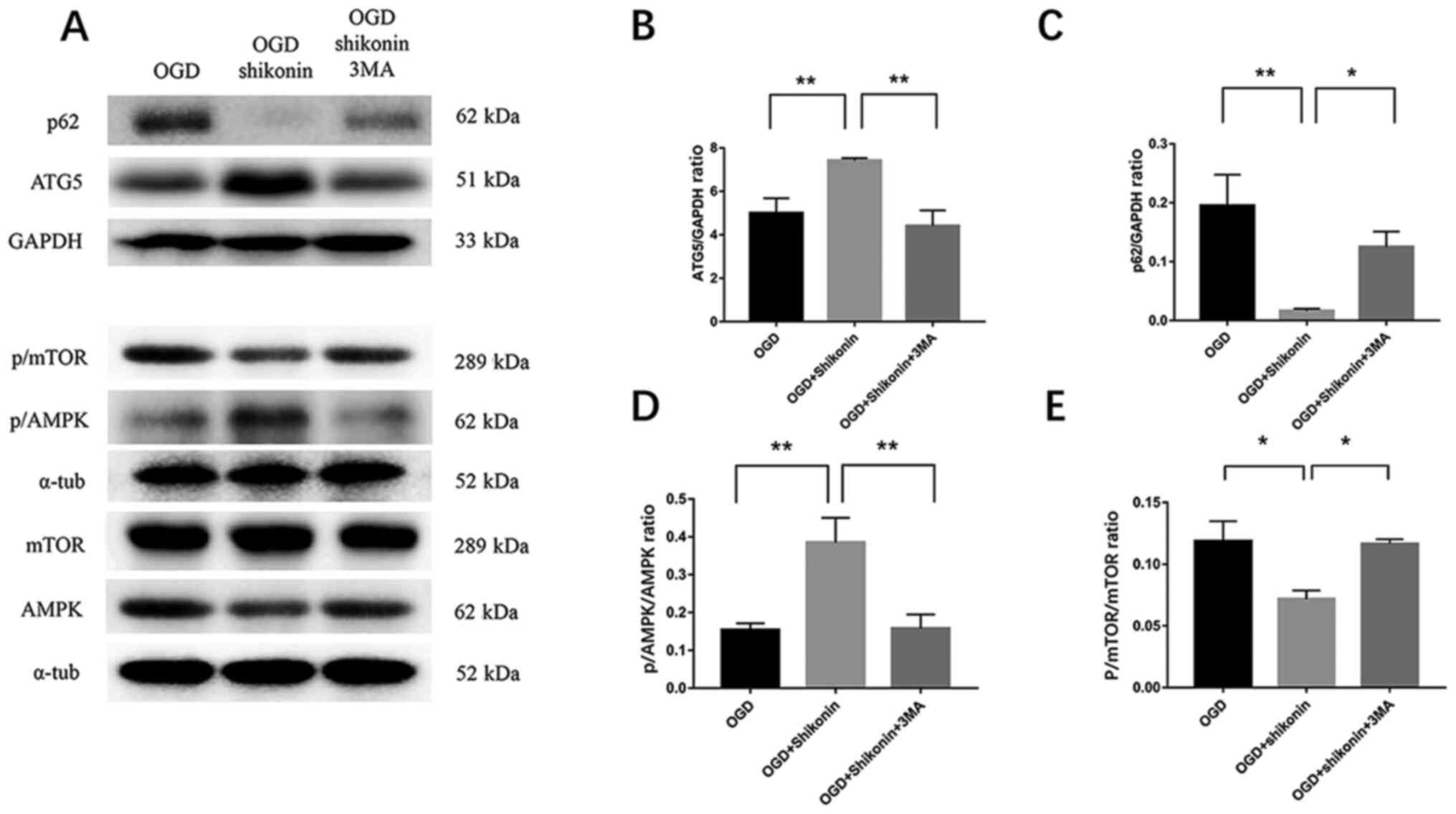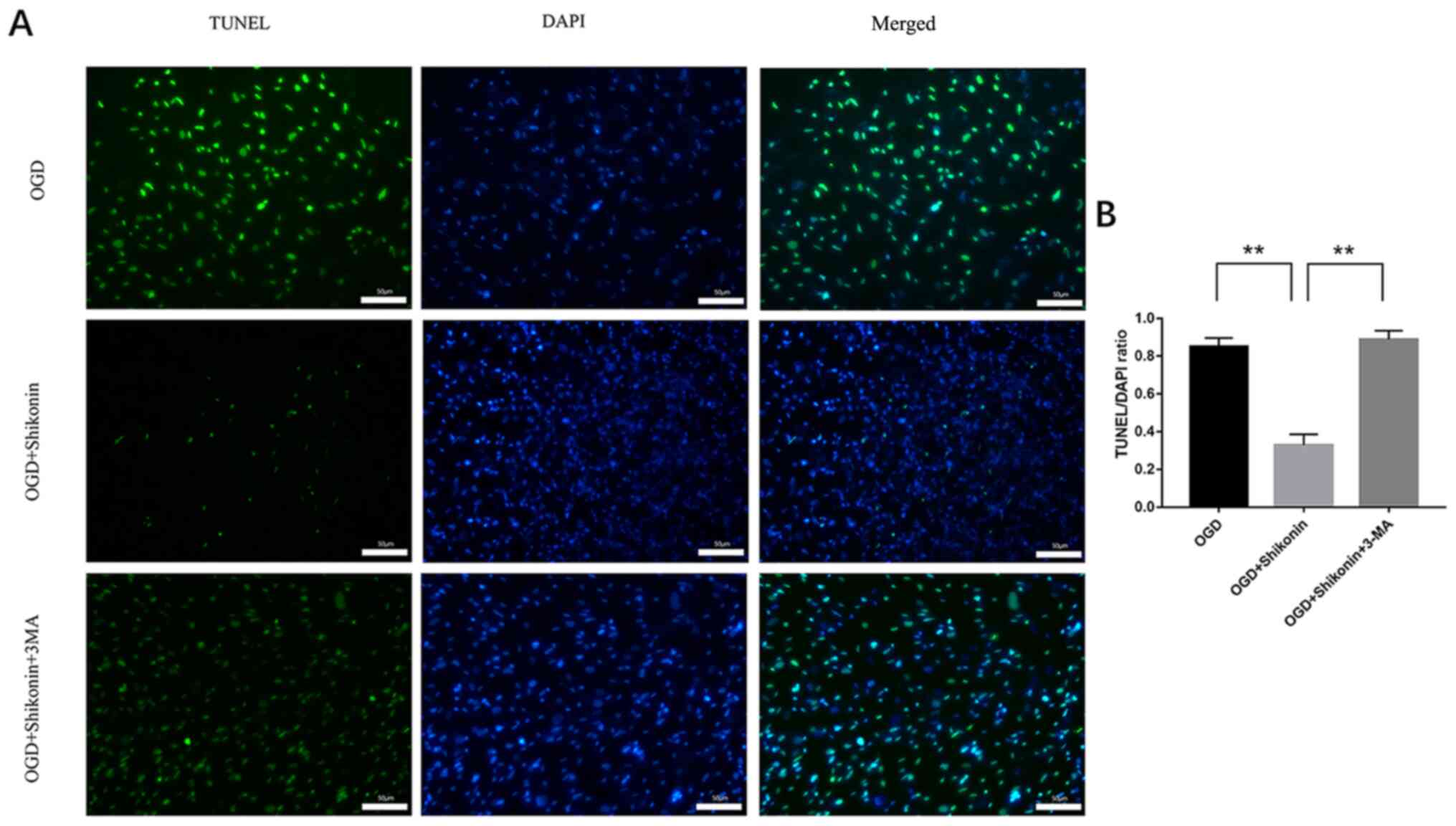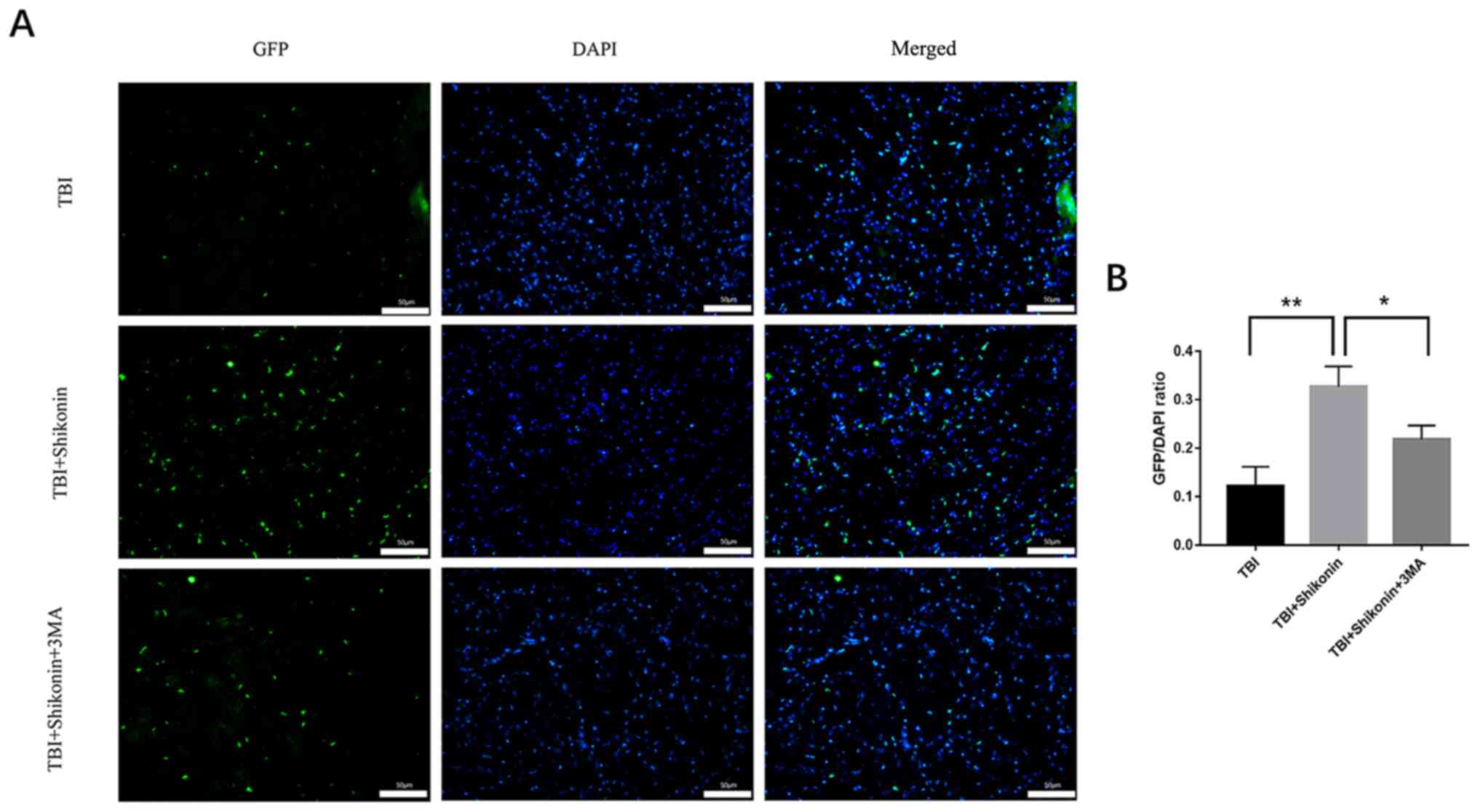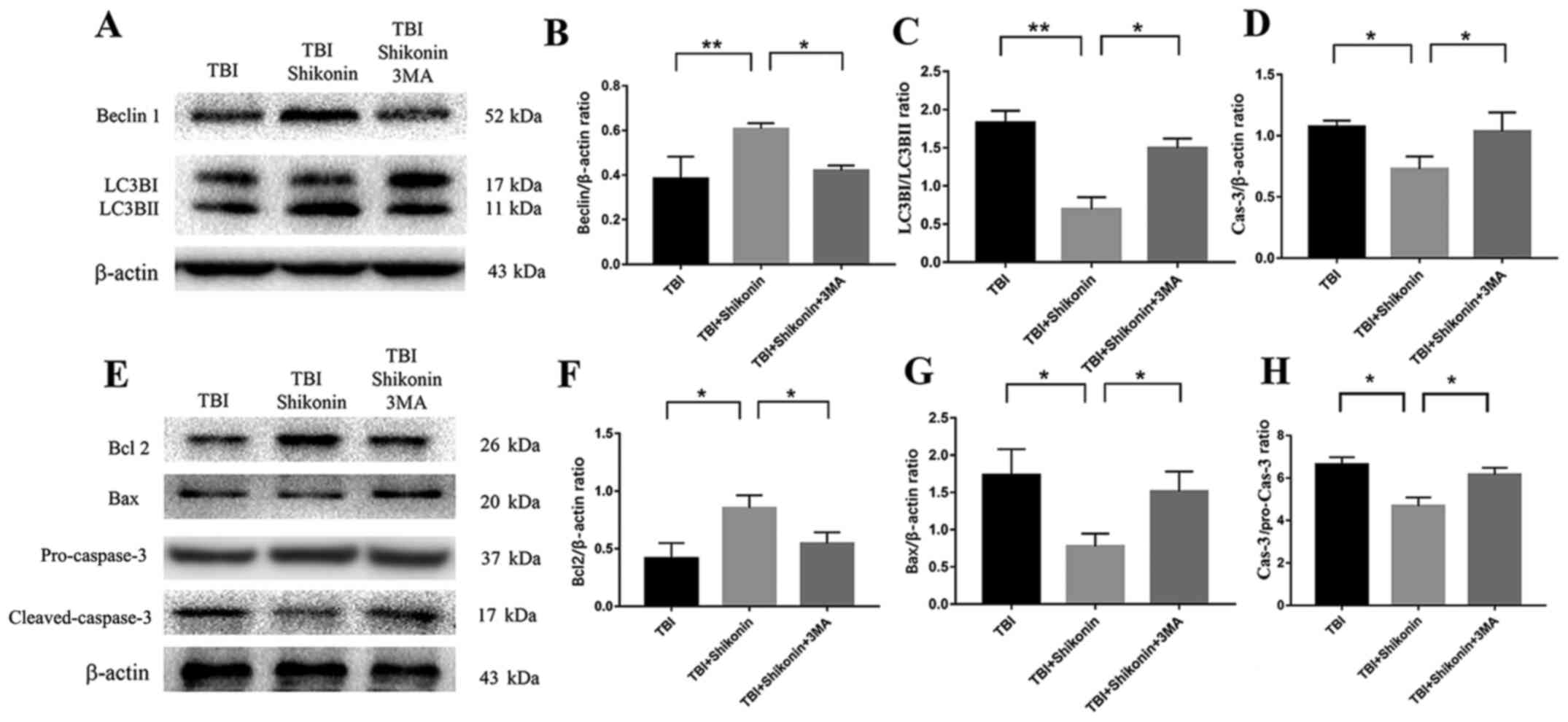|
1
|
Feigin VL, Nichols E, Alam T, Bannick MS,
Beghi E, Blake N, Culpepper WJ, Dorsey ER, Elbaz A, Ellenbogen RG,
et al: GBD 2016 Neurology Collaborators: Global, regional, and
national burden of neurological disorders, 1990-2016: A systematic
analysis for the Global Burden of Disease Study 2016. Lancet
Neurol. 18:459–480. 2019.PubMed/NCBI View Article : Google Scholar
|
|
2
|
Hu J, Chen L, Huang X, Wu K, Ding S, Wang
W, Wang B, Smith C, Ren C, Ni H, et al: Calpain inhibitor MDL28170
improves the transplantation-mediated therapeutic effect of bone
marrow-derived mesenchymal stem cells following traumatic brain
injury. Stem Cell Res Ther. 10(96)2019.PubMed/NCBI View Article : Google Scholar
|
|
3
|
Taylor CA, Bell JM, Breiding MJ and Xu L:
Traumatic Brain Injury-Related Emergency Department Visits,
Hospitalizations, and Deaths - United States, 2007 and 2013. MMWR
Surveill Summ. 66:1–16. 2017.PubMed/NCBI View Article : Google Scholar
|
|
4
|
Bennett MH, Trytko B and Jonker B:
Hyperbaric oxygen therapy for the adjunctive treatment of traumatic
brain injury. Cochrane Database Syst Rev.
12(CD004609)2012.PubMed/NCBI View Article : Google Scholar
|
|
5
|
Xiong Y, Mahmood A, Meng Y, Zhang Y, Zhang
ZG, Morris DC and Chopp M: Neuroprotective and neurorestorative
effects of thymosin β4 treatment following experimental traumatic
brain injury. Ann N Y Acad Sci. 1270:51–58. 2012.PubMed/NCBI View Article : Google Scholar
|
|
6
|
Hawryluk GWJ, Rubiano AM, Totten AM,
O'Reilly C, Ullman JS, Bratton SL, Chesnut R, Harris OA, Kissoon N,
Shutter L, et al: Guidelines for the Management of Severe Traumatic
Brain Injury: 2020 Update of the Decompressive Craniectomy
Recommendations. Neurosurgery. 87:427–434. 2020.PubMed/NCBI View Article : Google Scholar
|
|
7
|
Mahmood A, Lu D, Yi L, Chen JL and Chopp
M: Intracranial bone marrow transplantation after traumatic brain
injury improving functional outcome in adult rats. J Neurosurg.
94:589–595. 2001.PubMed/NCBI View Article : Google Scholar
|
|
8
|
Fairless R and Barnett SC: Olfactory
ensheathing cells: Their role in central nervous system repair. Int
J Biochem Cell Biol. 37:693–699. 2005.PubMed/NCBI View Article : Google Scholar
|
|
9
|
Chopp M and Li Y: Treatment of neural
injury with marrow stromal cells. Lancet Neurol. 1:92–100.
2002.PubMed/NCBI View Article : Google Scholar
|
|
10
|
Cox CS Jr, Baumgartner JE, Harting MT,
Worth LL, Walker PA, Shah SK, Ewing-Cobbs L, Hasan KM, Day MC, Lee
D, et al: Autologous bone marrow mononuclear cell therapy for
severe traumatic brain injury in children. Neurosurgery.
68:588–600. 2011.PubMed/NCBI View Article : Google Scholar
|
|
11
|
Zhang ZX, Guan LX, Zhang K, Zhang Q and
Dai LJ: A combined procedure to deliver autologous mesenchymal
stromal cells to patients with traumatic brain injury. Cytotherapy.
10:134–139. 2008.PubMed/NCBI View Article : Google Scholar
|
|
12
|
Skardelly M, Gaber K, Burdack S, Scheidt
F, Hilbig H, Boltze J, Förschler A, Schwarz S, Schwarz J,
Meixensberger J, et al: Long-term benefit of human fetal neuronal
progenitor cell transplantation in a clinically adapted model after
traumatic brain injury. J Neurotrauma. 28:401–414. 2011.PubMed/NCBI View Article : Google Scholar
|
|
13
|
Tate MC, Shear DA, Hoffman SW, Stein DG,
Archer DR and LaPlaca MC: Fibronectin promotes survival and
migration of primary neural stem cells transplanted into the
traumatically injured mouse brain. Cell Transplant. 11:283–295.
2002.PubMed/NCBI
|
|
14
|
Lee JP, Jeyakumar M, Gonzalez R, Takahashi
H, Lee PJ, Baek RC, Clark D, Rose H, Fu G, Clarke J, et al: Stem
cells act through multiple mechanisms to benefit mice with
neurodegenerative metabolic disease. Nat Med. 13:439–447.
2007.PubMed/NCBI View
Article : Google Scholar
|
|
15
|
Redmond DE Jr, Bjugstad KB, Teng YD,
Ourednik V, Ourednik J, Wakeman DR, Parsons XH, Gonzalez R,
Blanchard BC, Kim SU, et al: Behavioral improvement in a primate
Parkinson's model is associated with multiple homeostatic effects
of human neural stem cells. Proc Natl Acad Sci USA.
104:12175–12180. 2007.PubMed/NCBI View Article : Google Scholar
|
|
16
|
Arataki S, Tomizawa K, Moriwaki A, Nishida
K, Matsushita M, Ozaki T, Kunisada T, Yoshida A, Inoue H and Matsui
H: Calpain inhibitors prevent neuronal cell death and ameliorate
motor disturbances after compression-induced spinal cord injury in
rats. J Neurotrauma. 22:398–406. 2005.PubMed/NCBI View Article : Google Scholar
|
|
17
|
Fillmore N, Huqi A, Jaswal JS, Mori J,
Paulin R, Haromy A, Onay-Besikci A, Ionescu L, Thébaud B,
Michelakis E, et al: Effect of fatty acids on human bone marrow
mesenchymal stem cell energy metabolism and survival. PLoS One.
10(e0120257)2015.PubMed/NCBI View Article : Google Scholar
|
|
18
|
Xia W and Hou M: Macrophage migration
inhibitory factor induces autophagy to resist hypoxia/serum
deprivation-induced apoptosis via the AMP-activated protein
kinase/mammalian target of rapamycin signaling pathway. Mol Med
Rep. 13:2619–2626. 2016.PubMed/NCBI View Article : Google Scholar
|
|
19
|
Herberg S, Shi X, Johnson MH, Hamrick MW,
Isales CM and Hill WD: Stromal cell-derived factor-1β mediates cell
survival through enhancing autophagy in bone marrow-derived
mesenchymal stem cells. PLoS One. 8(e58207)2013.PubMed/NCBI View Article : Google Scholar
|
|
20
|
Mizushima N: Autophagy: Process and
function. Genes Dev. 21:2861–2873. 2007.PubMed/NCBI View Article : Google Scholar
|
|
21
|
Yang Z and Klionsky DJ: Mammalian
autophagy: Core molecular machinery and signaling regulation. Curr
Opin Cell Biol. 22:124–131. 2010.PubMed/NCBI View Article : Google Scholar
|
|
22
|
Ferraro E and Cecconi F: Autophagic and
apoptotic response to stress signals in mammalian cells. Arch
Biochem Biophys. 462:210–219. 2007.PubMed/NCBI View Article : Google Scholar
|
|
23
|
He C and Klionsky DJ: Regulation
mechanisms and signaling pathways of autophagy. Annu Rev Genet.
43:67–93. 2009.PubMed/NCBI View Article : Google Scholar
|
|
24
|
Danial NN and Korsmeyer SJ: Cell death:
Critical control points. Cell. 116:205–219. 2004.PubMed/NCBI View Article : Google Scholar
|
|
25
|
Baldwin AS: Regulation of cell death and
autophagy by IKK and NF-κB: Critical mechanisms in immune function
and cancer. Immunol Rev. 246:327–345. 2012.PubMed/NCBI View Article : Google Scholar
|
|
26
|
Palikaras K, Lionaki E and Tavernarakis N:
Mitophagy: In sickness and in health. Mol Cell Oncol.
3(e1056332)2015.PubMed/NCBI View Article : Google Scholar
|
|
27
|
Debnath J, Baehrecke EH and Kroemer G:
Does autophagy contribute to cell death? Autophagy. 1:66–74.
2005.PubMed/NCBI View Article : Google Scholar
|
|
28
|
Maiuri MC, Zalckvar E, Kimchi A and
Kroemer G: Self-eating and self-killing: Crosstalk between
autophagy and apoptosis. Nat Rev Mol Cell Biol. 8:741–752.
2007.PubMed/NCBI View Article : Google Scholar
|
|
29
|
Bi Y, Zhu Y, Zhang M, Zhang K, Hua X, Fang
Z, Zhou J, Dai W, Cui Y, Li J, et al: Effect of Shikonin on Spinal
Cord Injury in Rats Via Regulation of HMGB1/TLR4/NF-κB Signaling
Pathway. Cell Physiol Biochem. 43:481–491. 2017.PubMed/NCBI View Article : Google Scholar
|
|
30
|
Wang L, Li Z, Zhang X, Wang S, Zhu C, Miao
J, Chen L, Cui L and Qiao H: Protective effect of shikonin in
experimental ischemic stroke: Attenuated TLR4, p-p38MAPK, NF-κB,
TNF-α and MMP-9 expression, up-regulated claudin-5 expression,
ameliorated BBB permeability. Neurochem Res. 39:97–106.
2014.PubMed/NCBI View Article : Google Scholar
|
|
31
|
Gan L, Wang ZH, Zhang H, Zhou R, Sun C,
Liu Y, Si J, Liu YY and Wang ZG: Protective effects of shikonin on
brain injury induced by carbon ion beam irradiation in mice. Biomed
Environ Sci. 28:148–151. 2015.PubMed/NCBI View Article : Google Scholar
|
|
32
|
Ding H, Jiang L, Xu J, Bai F, Zhou Y, Yuan
Q, Luo J, Zen K and Yang J: Inhibiting aerobic glycolysis
suppresses renal interstitial fibroblast activation and renal
fibrosis. Am J Physiol Renal Physiol. 313:F561–F575.
2017.PubMed/NCBI View Article : Google Scholar
|
|
33
|
Li F, Zhang K, Liu H, Yang T, Xiao DJ and
Wang YS: The neuroprotective effect of mesenchymal stem cells is
mediated through inhibition of apoptosis in hypoxic ischemic
injury. World J Pediatr. 16:193–200. 2020.PubMed/NCBI View Article : Google Scholar
|
|
34
|
Li W, Liu J and Zhao Y: PKM2 inhibitor
shikonin suppresses TPA-induced mitochondrial malfunction and
proliferation of skin epidermal JB6 cells. Mol Carcinog.
53:403–412. 2014.PubMed/NCBI View Article : Google Scholar
|
|
35
|
Liu Y, Kang X, Niu G, He S, Zhang T, Bai
Y, Li Y, Hao H, Chen C, Shou Z, et al: Shikonin induces apoptosis
and prosurvival autophagy in human melanoma A375 cells via
ROS-mediated ER stress and p38 pathways. Artif Cells Nanomed
Biotechnol. 47:626–635. 2019.PubMed/NCBI View Article : Google Scholar
|
|
36
|
Wang Z, Liu T, Gan L, Wang T, Yuan X,
Zhang B, Chen H and Zheng Q: Shikonin protects mouse brain against
cerebral ischemia/reperfusion injury through its antioxidant
activity. Eur J Pharmacol. 643:211–217. 2010.PubMed/NCBI View Article : Google Scholar
|
|
37
|
Romine J, Gao X and Chen J: Controlled
cortical impact model for traumatic brain injury. J Vis Exp.
90(e51781)2014.PubMed/NCBI View
Article : Google Scholar
|
|
38
|
New J and Thomas SM: Autophagy-dependent
secretion: Mechanism, factors secreted, and disease implications.
Autophagy. 15:1682–1693. 2019.PubMed/NCBI View Article : Google Scholar
|
|
39
|
Zhang Q, Yang YJ, Wang H, Dong QT, Wang
TJ, Qian HY and Xu H: Autophagy activation: A novel mechanism of
atorvastatin to protect mesenchymal stem cells from hypoxia and
serum deprivation via AMP-activated protein kinase/mammalian target
of rapamycin pathway. Stem Cells Dev. 21:1321–1332. 2012.PubMed/NCBI View Article : Google Scholar
|
|
40
|
Hardie DG, Ross FA and Hawley SA: AMPK: A
nutrient and energy sensor that maintains energy homeostasis. Nat
Rev Mol Cell Biol. 13:251–262. 2012.PubMed/NCBI View Article : Google Scholar
|
|
41
|
Tang Z, Gao J, Wu J, Zeng G, Liao Y, Song
Z, Liang X, Hu J, Hu Y, Liu M, et al: Human umbilical cord
mesenchymal stromal cells attenuate pulmonary fibrosis via
regulatory T cell through interaction with macrophage. Stem Cell
Res Ther. 12(397)2021.PubMed/NCBI View Article : Google Scholar
|
|
42
|
Napoli I and Neumann H: Microglial
clearance function in health and disease. Neuroscience.
158:1030–1038. 2009.PubMed/NCBI View Article : Google Scholar
|
|
43
|
Carrico KM, Vaishnav R and Hall ED:
Temporal and spatial dynamics of peroxynitrite-induced oxidative
damage after spinal cord contusion injury. J Neurotrauma.
26:1369–1378. 2009.PubMed/NCBI View Article : Google Scholar
|
|
44
|
Mangi AA, Noiseux N, Kong D, He H, Rezvani
M, Ingwall JS and Dzau VJ: Mesenchymal stem cells modified with Akt
prevent remodeling and restore performance of infarcted hearts. Nat
Med. 9:1195–1201. 2003.PubMed/NCBI View
Article : Google Scholar
|
|
45
|
McNamara EH, Grillakis AA, Tucker LB and
McCabe JT: The closed-head impact model of engineered rotational
acceleration (CHIMERA) as an application for traumatic brain injury
pre-clinical research: A status report. Exp Neurol.
333(113409)2020.PubMed/NCBI View Article : Google Scholar
|
|
46
|
Bolouri H and Zetterberg H: Animal Models
for Concussion: Molecular and Cognitive Assessments - Relevance to
Sport and Military Concussions. Chapter 46. In: Brain Neurotrauma.
Kobeissy FH (ed). CRC Press/Taylor & Francis, Boca Raton, FL,
pp645-658, 2015.
|
|
47
|
Liu B, Jin J, Zhang Z, Zuo L, Jiang M and
Xie C: Shikonin exerts antitumor activity by causing mitochondrial
dysfunction in hepatocellular carcinoma through PKM2-AMPK-PGC1α
signaling pathway. Biochem Cell Biol. 97:397–405. 2019.PubMed/NCBI View Article : Google Scholar
|
|
48
|
Jiang S, Li T, Ji T, Yi W, Yang Z, Wang S,
Yang Y and Gu C: AMPK: Potential Therapeutic Target for Ischemic
Stroke. Theranostics. 8:4535–4551. 2018.PubMed/NCBI View Article : Google Scholar
|
|
49
|
Qiang L, Wu C, Ming M, Viollet B and He
YY: Autophagy controls p38 activation to promote cell survival
under genotoxic stress. J Biol Chem. 288:1603–1611. 2013.PubMed/NCBI View Article : Google Scholar
|
|
50
|
Zhang H, Bosch-Marce M, Shimoda LA, Tan
YS, Baek JH, Wesley JB, Gonzalez FJ and Semenza GL: Mitochondrial
autophagy is an HIF-1-dependent adaptive metabolic response to
hypoxia. J Biol Chem. 283:10892–10903. 2008.PubMed/NCBI View Article : Google Scholar
|
|
51
|
Bachmann J, Ehlert E, Becker M, Otto C,
Radeloff K, Blunk T and Bauer-Kreisel P: Ischemia-Like Stress
Conditions Stimulate Trophic Activities of Adipose-Derived
Stromal/Stem Cells. Cells. 9:1935–1955. 2020.PubMed/NCBI View Article : Google Scholar
|
|
52
|
Hamacher-Brady A, Brady NR, Logue SE,
Sayen MR, Jinno M, Kirshenbaum LA, Gottlieb RA and Gustafsson AB:
Response to myocardial ischemia/reperfusion injury involves Bnip3
and autophagy. Cell Death Differ. 14:146–157. 2007.PubMed/NCBI View Article : Google Scholar
|
|
53
|
Gwon SY, Ahn J, Jung CH, Moon B and Ha
T-Y: Shikonin Attenuates Hepatic Steatosis by Enhancing Beta
Oxidation and Energy Expenditure via AMPK Activation. Nutrients.
12:1133–1145. 2020.PubMed/NCBI View Article : Google Scholar
|
|
54
|
Wang F, Mayca Pozo F, Tian D, Geng X, Yao
X, Zhang Y and Tang J: Shikonin Inhibits Cancer Through P21
Upregulation and Apoptosis Induction. Front Pharmacol. 11:861–873.
2020.PubMed/NCBI View Article : Google Scholar
|
|
55
|
Kapahi P, Chen D, Rogers AN, Katewa SD, Li
PW, Thomas EL and Kockel L: With TOR, less is more: A key role for
the conserved nutrient-sensing TOR pathway in aging. Cell Metab.
11:453–465. 2010.PubMed/NCBI View Article : Google Scholar
|















